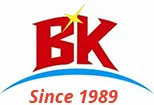Environmental testing is an essential component of the Variable Speed Road Bike manufacturing process, ensuring that products are safe, reliable, and durable. By conducting thorough material testing, structural integrity testing, durability testing, comfort testing, and environmental testing, manufacturers can produce high-quality mountain bikes that meet both regulatory requirements and customer expectations. Looking forward, advancements in smart testing technologies, virtual simulation, and sustainable practices will continue to shape the future of mountain bike quality testing. These innovations will not only improve the efficiency and effectiveness of testing processes but also contribute to the development of safer, more durable, and environmentally responsible products for riders around the world.
As environmental awareness grows, Off Road Mountain Bike manufacturers increasingly focus on sustainability. Environmental testing ensures that the materials and manufacturing processes used are environmentally friendly. This includes:

Harmful Substance Testing: Checks for the presence of hazardous materials, such as heavy metals or volatile organic compounds (VOCs), in the bike's components.
Carbon Footprint Assessment: Evaluates the environmental impact of the production process, encouraging the use of eco-friendly materials and manufacturing techniques.
Recyclability Testing: Assesses whether the materials used in the bike can be recycled or disposed of sustainably, contributing to the product's overall environmental responsibility.
3. Standards for Aluminum Alloy Bicycle Quality Testing
(1)International Standards
Mountain bike quality testing is governed by various international standards, ensuring consistency and safety across different markets. Key standards include:
ISO 4210-6:2015: This standard outlines safety requirements and testing methods for bicycles, including mountain bikes, ensuring that they meet minimum safety criteria.
EN 14766:2005: A European standard specific to mountain bikes, covering safety requirements and test methods, focusing on aspects like frame strength, brake performance, and durability.

(2)National Standards
Different countries have their own standards for mountain bike quality testing, which manufacturers must adhere to in order to sell their products in those markets. Examples include:
GB 3565-2005 (China): This standard outlines the general requirements, test methods, and inspection rules for bicycles, including mountain bikes, ensuring they meet the necessary safety and performance criteria for the Chinese market.
CPSC Standards (USA): Set by the U.S. Consumer Product Safety Commission, these standards focus on safety aspects such as braking performance and structural integrity, critical for products sold in the U.S. market.
(3)Industry Standards
In addition to international and national standards, industry leaders and associations often establish their own quality benchmarks. These standards are typically more stringent and are designed to maintain high quality MTBs in premium products. Leading brands like Shimano and SRAM have proprietary standards for components like drivetrains and braking systems, ensuring superior performance and durability.
4. Future Trends in Mountain Bike Quality Testing
(1)Smart Testing Technologies
With advancements in technology, smart testing methods are becoming more prevalent in the mountain bicycle manufacture industry. These technologies include:
Sensor-Based Monitoring: Integrating sensors into the bike to continuously monitor performance parameters such as stress, strain, and vibration during actual use. This real-time data allows for predictive maintenance and more precise quality control.
Big Data Analytics: Utilizing large datasets from sensor-equipped bikes to analyze trends and predict potential failure points, enabling manufacturers to improve product design and quality before issues arise.
(2)Virtual Simulation and Testing
Virtual simulation technologies are revolutionizing the way mountain bikes are tested. These technologies allow engineers to conduct a variety of tests in a virtual environment, reducing the need for physical prototypes. Benefits include:
Cost and Time Efficiency: Virtual simulations can significantly reduce the time and cost associated with traditional testing methods by allowing multiple design iterations to be tested quickly and efficiently.
Enhanced Design Optimization: Engineers can simulate a wide range of conditions and stresses to optimize the bike's design for performance and durability before physical production begins.
(3)Sustainable Quality Testing
As the demand for environmentally sustainable products grows, quality testing will increasingly focus on sustainability. Future testing methods may include:
Eco-Friendly Material Testing: Assessing the use of biodegradable or recyclable materials in the manufacturing process, ensuring that the bike is environmentally responsible from production to disposal.
Lifecycle Assessment (LCA): Evaluating the environmental impact of a mountain bike throughout its entire lifecycle, from raw material extraction to end-of-life disposal, to minimize the overall carbon footprint.

(4)Global Standardization
As globalization continues, the standardization of quality testing across different markets is expected to increase. This trend includes:
Harmonization of Standards: International organizations like ISO are working towards harmonizing standards globally, which will simplify the testing process for manufacturers and ensure consistent quality across different regions.
Cross-Border Collaboration: Increased collaboration between regulatory bodies across different countries will help create unified testing protocols, reducing the complexity and cost of adhering to multiple standards.
 A professional manufacturer specializes in design, production and sales of various E-Bike & Scooter in China.
A professional manufacturer specializes in design, production and sales of various E-Bike & Scooter in China.








